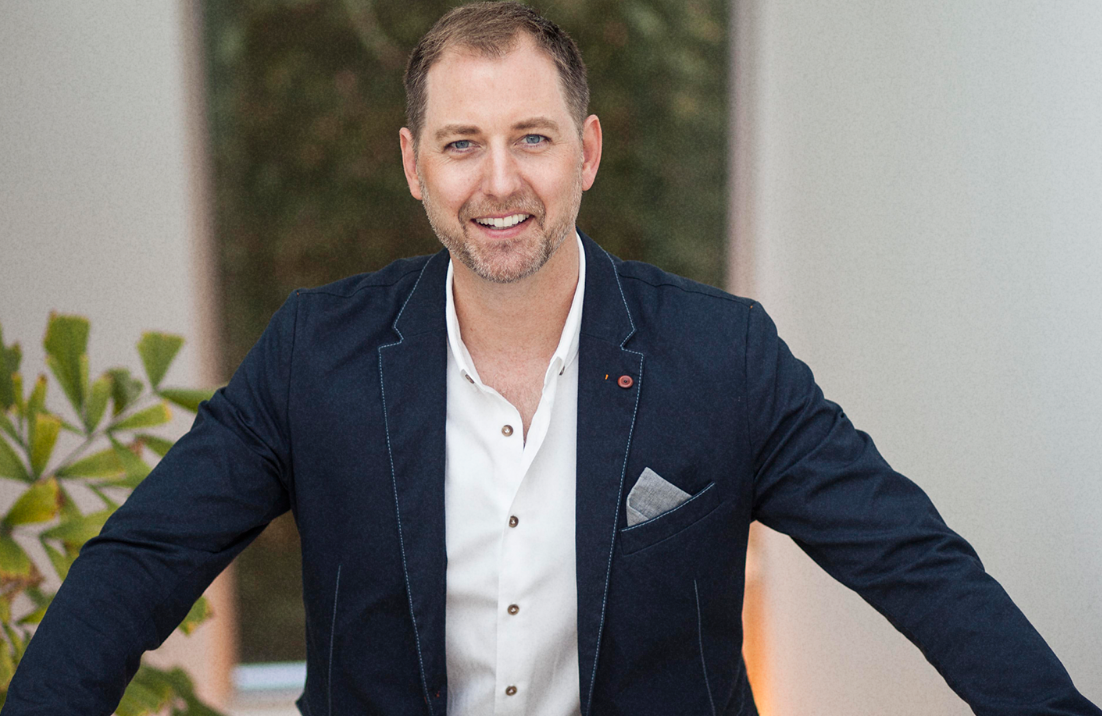Childhood wounds are one of the most significant navigational tools to find your life’s purpose. They shape your self-esteem, how you think and what you hope to achieve. In order to grow from these wounds, we must understand why something hurt us, how we react and what we need to do to come to peace with it.
Think about a time you had a tough class in school. You were bound and determined to get an A. Your parents encouraged or perhaps even pressured you, so you studied your butt off and stressed about the grade until report cards came out.
On report card day, you were ecstatic. You quickly realized you had one of the highest grades in the class. On the bus home, you bounced in your seat with anticipation. You couldn’t wait to show your parents your accomplishment.
As you burst through the front door, you yelled, “Mom! Dad! I got a 97 in science!” Your father turned and said, “That’s nice. Now go to your room, I’m in the middle of something.”
Your world was turned upside-down. You were anticipating a hero’s welcome. Instead, your reception felt like a punishment. Of course, you didn’t know that you had just walked in on a conversation your parents were having about a possible divorce.
Assigning meaning to a painful experience
As you retreated to your bedroom, your mind turned over all the “whys.” The challenge with wounding experiences is they’re fundamentally confusing, and we’re meaning-making machines. It’s our nature to assign a reason to help us understand why something happened.
 We’re programmed to not bite the hand that feeds us, so it’s unnatural to blame our parents in that moment. Because of this, most of us find fault within ourselves no matter how trivial or contrived. Unconsciously we think, “There’s something I did to make me unworthy of receiving the praise I expected.”
We’re programmed to not bite the hand that feeds us, so it’s unnatural to blame our parents in that moment. Because of this, most of us find fault within ourselves no matter how trivial or contrived. Unconsciously we think, “There’s something I did to make me unworthy of receiving the praise I expected.”
What caused the wound is largely irrelevant. What’s important is how we respond to the experience. In most cases, the response is to adopt a negative belief about oneself. What I find when I speak to my clients is that these erroneous beliefs tend to become self-reinforcing. Whenever we encounter a similar situation, that thought pops up again in our psyche. “See, I told you you weren’t good enough.”
As we become adults, we have a defense mechanism that seeks to prove these beliefs are wrong. Individuals who struggle with thinking they’re failures fight to become hyper-successful, often achieving far more than anyone around them because of this quiet, nagging voice in the back of their head whispering that they’re a failure.
The value of wound patterns
Each of us is predisposed to specific wound patterns. That’s why siblings who are exposed to identical parenting styles and environments often learn entirely different lessons from the same encounters. I believe our souls come into this life open to a certain calling. The training and development program to prepare us for our calling, as painful as it is, consists of our wounds.
 Every wound has what I call a “holy expression.” Feelings of worthlessness are felt by someone whose soul is on a journey towards understanding and experiencing their inherent value. Someone who believes she is worthless will embark on a lifelong journey to chase her worth. First it will start out as an external quest, and when that doesn’t work, the deeper internal work of discovering one’s inherent worth begins.
Every wound has what I call a “holy expression.” Feelings of worthlessness are felt by someone whose soul is on a journey towards understanding and experiencing their inherent value. Someone who believes she is worthless will embark on a lifelong journey to chase her worth. First it will start out as an external quest, and when that doesn’t work, the deeper internal work of discovering one’s inherent worth begins.
Wounds that strike us to our core are most valuable because they reveal what’s most important to us. Our wounds point us toward the mission we were designed to accomplish in life.
Our operating systems
Humans have two basic operating systems: wound-driven and purpose-driven. A wound-driven operating system is based on reactions to our psyche’s foundational wounds, typically experienced in childhood. These have a profound impact on our beliefs. Reactivity is incredibly powerful and motivates much of our drive in the first half of life.
Unfortunately, reactions often cause us to move in reverse. We might think we’re moving towards a goal, but if that goal is based on the wound
We learn to define our lives by the goals we’re moving towards. But when those life goals are unconsciously driven by our wounds, what we’re actually doing is moving away from what we don’t want.
Purpose-driven operating systems are founded upon resolving our core wounds so that the reactivity energy neutralizes. This allows us to be available for something else. Instead of moving away from something, we are free to move toward what our soul wants.
The use of active imagination
One of the techniques I use with my clients is Active Imagination, a process pioneered by Freud’s protégé Carl Jung. The goal is to neutralize the power of a negative core belief by touching it. You need to become acquainted with it, understand it and eventually come to peace with it.
 This starts with a conversation. Open a journal or a blank computer document. If you’ve ever read a screenplay, the structure will be very familiar. Write your name followed by a colon, write to the wounded part of your psyche. Allow that part of you to respond in kind.
This starts with a conversation. Open a journal or a blank computer document. If you’ve ever read a screenplay, the structure will be very familiar. Write your name followed by a colon, write to the wounded part of your psyche. Allow that part of you to respond in kind.
Your name: Hi, [part’s name], are you open to a conversation?
Parts name: Sure, what do you want to talk about?
This sounds strange, I know. But realize this conversation is already happening inside of you. Negative beliefs caused by past wounds allow doubts and insecurities to quietly, insidiously swirl in the back of your mind. They go with you everywhere, competing for attention with a number of other voices: the one that’s reminding you to pick up the dry cleaning, the one that’s wondering what your friend John meant by his remark and the sense of unease caused by a daunting evening commute.
Active imagination allows you to draw that childhood wound out from the cacophony of other voices and give ear to it. Listen to its arguments and have a conversation about it. Fear and doubt find power in the dark, the unknown and the misunderstood. This technique disarms your negative core beliefs and restructures your operating system to move towards being purpose-driven.
Growth from wounds
Giving your pain the freedom to proclaim the full weight of its doubt and insecurity enables you to face it. Only then can you (eventually) come to peace with it. When you disarm your wound-driven operating system, you are liberated to hear your soul’s voice more fully.
However, you come out on the other side with more than liberation. You learn what your soul values most. This could be one of the most significant navigational aids you’ll encounter on the path to discovering and living your life’s purpose. Understand what you love. Only then can you follow it.
The views and opinions expressed are those of the guest author and do not necessarily reflect the views and opinions of MindShift.money.
image credit: Bigstock/obey leesin

